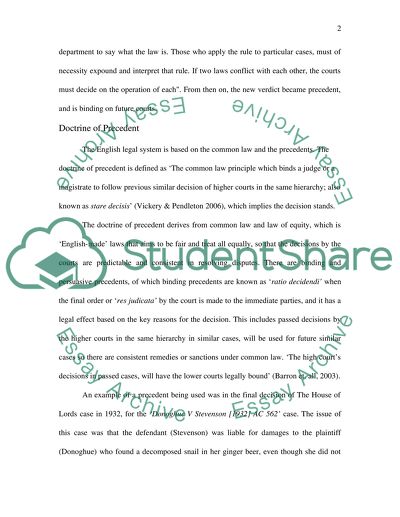Cite this document
(Doctrine of Precedent Case Study Example | Topics and Well Written Essays - 2250 words, n.d.)
Doctrine of Precedent Case Study Example | Topics and Well Written Essays - 2250 words. Retrieved from https://studentshare.org/law/1565183-doctrine-of-precedent
Doctrine of Precedent Case Study Example | Topics and Well Written Essays - 2250 words. Retrieved from https://studentshare.org/law/1565183-doctrine-of-precedent
(Doctrine of Precedent Case Study Example | Topics and Well Written Essays - 2250 Words)
Doctrine of Precedent Case Study Example | Topics and Well Written Essays - 2250 Words. https://studentshare.org/law/1565183-doctrine-of-precedent.
Doctrine of Precedent Case Study Example | Topics and Well Written Essays - 2250 Words. https://studentshare.org/law/1565183-doctrine-of-precedent.
“Doctrine of Precedent Case Study Example | Topics and Well Written Essays - 2250 Words”. https://studentshare.org/law/1565183-doctrine-of-precedent.


